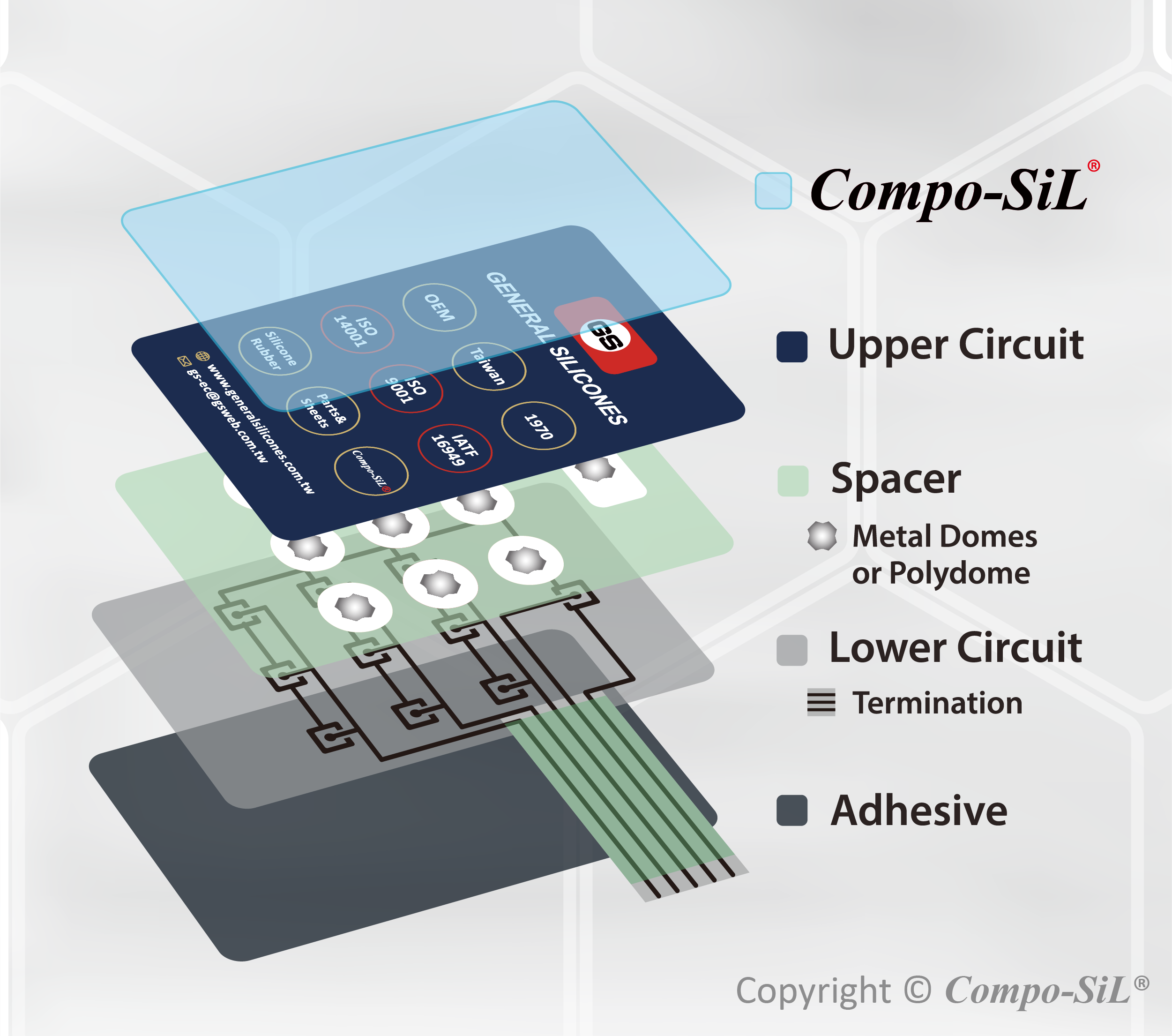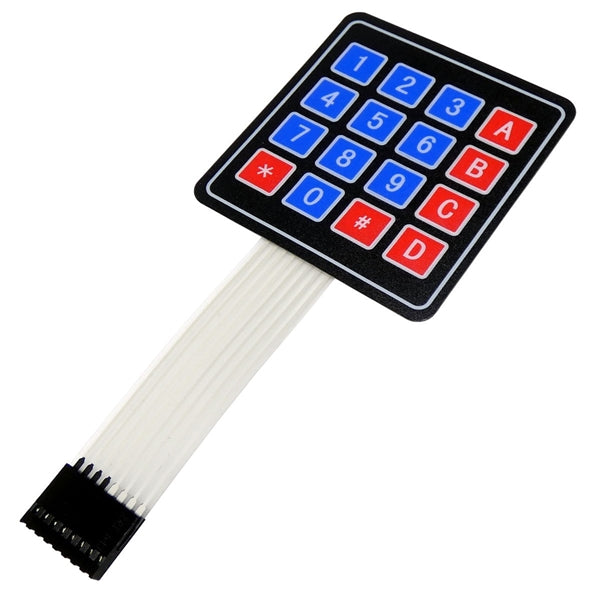How Membrane Switches Are Revolutionizing User Interface Design
How Membrane Switches Are Revolutionizing User Interface Design
Blog Article
Understanding the Relevance of Membrane Switches in User User Interfaces
Membrane buttons are indispensable elements in the design of reliable user interfaces, facilitating not only functionality but likewise enhancing visual appeal and individual communication. As we explore the various advantages and future trends associated with Membrane innovation, it becomes clear that these switches are more than simply parts; they represent a convergence of development and usefulness.
What Are Membrane Buttons?

The spacer layer, which has glue properties, enables the splitting up of the circuit layer from the overlay, ensuring that the button continues to be in a non-activated state till pressed. When pressure is used to the overlay, it presses the spacer layer, linking the void and finishing the circuit in the underlying layer. This style not just reduces the physical room required for typical mechanical buttons but additionally enhances the longevity of the device, as Membrane switches are typically immune to dust, wetness, and other ecological variables.
Generally found in applications varying from customer electronic devices to medical gadgets, Membrane buttons are important to modern-day technology, supplying a reliable and easy to use user interface that straightens with modern design requirements.
Advantages of Membrane Switches
While numerous button innovations exist, Membrane Switches offer distinct benefits that make them specifically preferable in different applications. Among the key benefits of Membrane switches is their compact layout, which permits space-saving applications in devices where property is limited. Their thin profile not only enhances visual allure but likewise helps with light-weight building and construction.
An additional considerable advantage is their resistance to environmental variables. Membrane switches are normally sealed versus moisture, dirt, and contaminants, making them suitable for use in requiring environments, such as clinical devices and commercial equipment. This durability prolongs the life expectancy of the switch, decreasing upkeep prices and enhancing integrity.
Additionally, Membrane switches can be customized to fulfill particular layout needs, integrating distinct graphics and colors that improve user communication. Their tactile comments options can also be tailored to give a rewarding individual experience. Furthermore, Membrane switches are affordable, especially in high-volume applications, as they can be generated successfully.
Applications in Different Industries

In the consumer electronic devices field, Membrane switches prevail in devices such as microwaves, cleaning devices, and remote controls. Their responsive comments and visual choices improve user experience while supplying a sleek, modern look. In addition, auto makers make use of Membrane buttons in dashboard controls and infotainment systems, where area is limited, and user engagement is crucial.
Furthermore, the industrial industry leverages Membrane buttons in control panels for equipment and devices, permitting intuitive operation in typically severe atmospheres. Their resistance to chemicals and dampness makes sure longevity and reliability in these applications. In general, the flexibility of Membrane Switches adds considerably to their extensive use, making them indispensable in numerous technical domain names.
Design Considerations for Membrane Buttons

When designing Membrane switches, a number of key factors to consider need to be considered to ensure ideal functionality check my reference and customer experience. First of all, the selection of materials is crucial; picking resilient, high-quality substratums can enhance the button's longevity and resistance to ecological factors such as wetness and temperature level changes.
Secondly, the design of the graphic overlay need to prioritize clearness and Bonuses ease of usage. Symbols and message have to be clear, and the design must promote instinctive communication (membrane switches). In addition, responsive feedback is vital; integrating a tactile dome or other devices can boost the individual experience by giving physical confirmation of activation
One more essential factor is the button's electric performance. Developers must ensure that the conductive traces are correctly developed to decrease resistance and avoid signal interference. This includes evaluating the called for actuation pressure and making certain compatibility with the digital elements they will user interface with.

Future Patterns in Membrane Modern Technology
As technology proceeds to development, Membrane switches are poised to evolve substantially, driven by innovations in materials and making techniques. One emerging pattern is the unification of advanced materials, such as conductive inks and versatile substratums, which improve durability and minimize the total weight of Membrane switches. These materials not only enhance the tactile feedback yet also permit the style of buttons that can stand up to harsher ecological problems.
In addition, the assimilation of touch-sensitive technologies is transforming traditional Membrane Switches right into even more interactive individual interfaces. Capacitive touch sensing units embedded within Membrane button panels can provide a much more instinctive and responsive user experience, straightening with the expanding demand for streamlined, modern designs in customer electronic devices.
In addition, developments in printing methods, such as electronic and 3D printing, enable quick prototyping and modification of Membrane buttons. This versatility allows suppliers to react much more quickly to market needs and customer choices.
Finally, sustainability is ending up being a considerable emphasis, with suppliers checking out eco-friendly materials and procedures. As these trends unravel, the future of Membrane modern technology guarantees boosted functionality, visual charm, and environmental responsibility, solidifying their role in sophisticated interface across numerous sectors.
Verdict
In final thought, Membrane Switches stand for a crucial element in click here for more info the style of individual interfaces, integrating capability with aesthetic adaptability. As improvements in innovation continue, the development of Membrane switches is anticipated to more refine customer interfaces, driving innovation and boosting usability in an increasingly complex technical landscape.
Membrane switches are integral elements in the layout of effective individual interfaces, assisting in not only capability but also improving visual appeal and individual communication.Membrane Switches offer as an essential element in various customer interfaces, promoting a smooth communication between users and digital gadgets.While numerous button innovations exist, Membrane Switches offer distinctive benefits that make them particularly desirable in different applications.In addition, Membrane switches can be customized to meet certain style requirements, integrating distinct graphics and colors that improve individual communication.In final thought, Membrane Switches stand for a vital element in the style of customer interfaces, combining functionality with visual flexibility.
Report this page